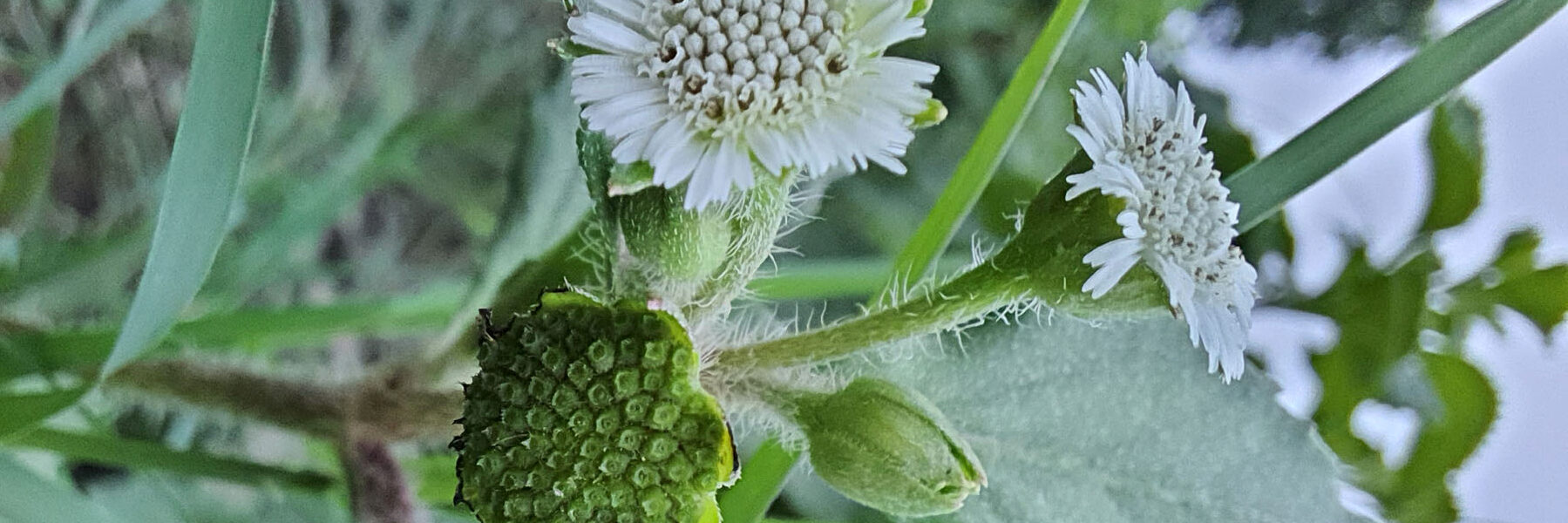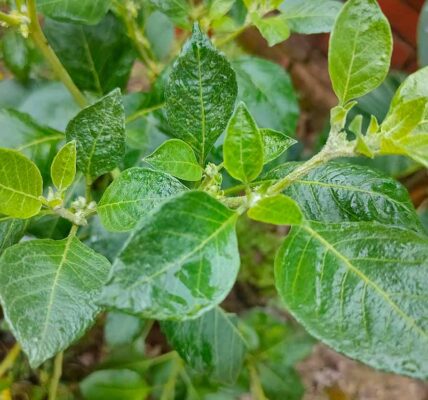In the labyrinth of Ayurveda, Bhringraj (Eclipta alba) emerges as a multifaceted herb revered for its potential contributions to liver and digestive health. In the context of our contemporary lives, characterized by pollution, stress, and erratic lifestyles, maintaining a healthy liver and robust digestion becomes paramount. This article explores the Ayurvedic perspective on Bhringraj, delving into its historical significance, its role in supporting liver function, aiding digestion, and addressing potential side effects, drawing from both classical texts and modern research.
Importance of Liver Health in Modern Life:
The liver, in Ayurveda termed as “Yakrit,” holds a pivotal role in maintaining overall health and well-being. In the current milieu of environmental pollution, processed foods, and sedentary lifestyles, the liver faces an increased burden of toxins. Ayurveda recognizes the liver as the primary seat of “Pitta” dosha, governing digestion, metabolism, and transformation within the body. A compromised liver can lead to a cascade of health issues, including digestive disorders, skin problems, and impaired metabolism.
Digestive Health: A Cornerstone of Well-Being:
Digestion, or “Agni” in Ayurveda, is the cornerstone of good health. A robust digestive system ensures proper assimilation of nutrients, elimination of waste, and the prevention of toxin buildup. However, the frenetic pace of modern life often leads to erratic eating habits, stress-induced digestive issues, and an imbalance in the digestive fire. Ayurveda emphasizes the pivotal role of balanced Agni in maintaining optimal health and preventing a plethora of ailments.
Bhringraj (Eclipta Alba) in Ayurveda: Historical Significance:
Bhringraj, also known as “Kesharaja” or “King of Hair,” has a rich historical lineage in Ayurvedic texts. Its mention in classical texts like the Charaka Samhita and Sushruta Samhita underscores its significance beyond its well-known benefits for hair health. Ayurveda recognizes Bhringraj (Eclipta Alba) as a potent herb with a range of therapeutic properties, including its potential to support liver function and aid digestion.
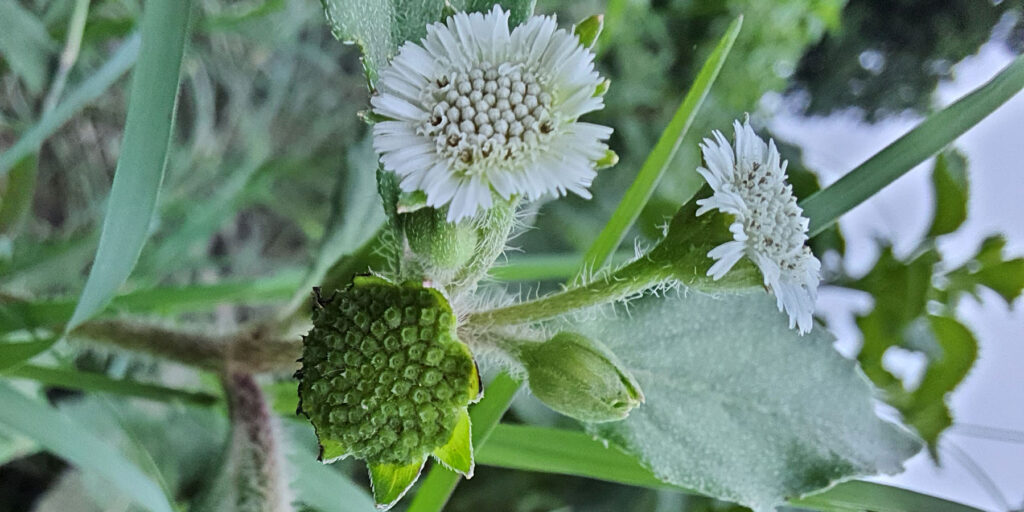
Bhringraj and Liver Health:
Classical Perspectives:
Ayurveda attributes a cooling and detoxifying nature to Bhringraj, making it valuable for pacifying excess Pitta in the liver. Its ability to enhance the detoxification processes of the liver aligns with Ayurvedic principles of promoting optimal functioning of this vital organ. Ancient Ayurvedic texts suggest that Bhringraj may help balance Pitta dosha, thereby supporting liver health.
Modern Research:
Contemporary scientific studies have investigated the hepatoprotective properties of Bhringraj (Eclipta Alba). Research suggests that the herb exhibits antioxidant and anti-inflammatory effects, potentially protecting the liver from damage caused by oxidative stress. Moreover, Bhringraj has demonstrated the ability to stimulate the regeneration of liver cells, further promoting liver health.
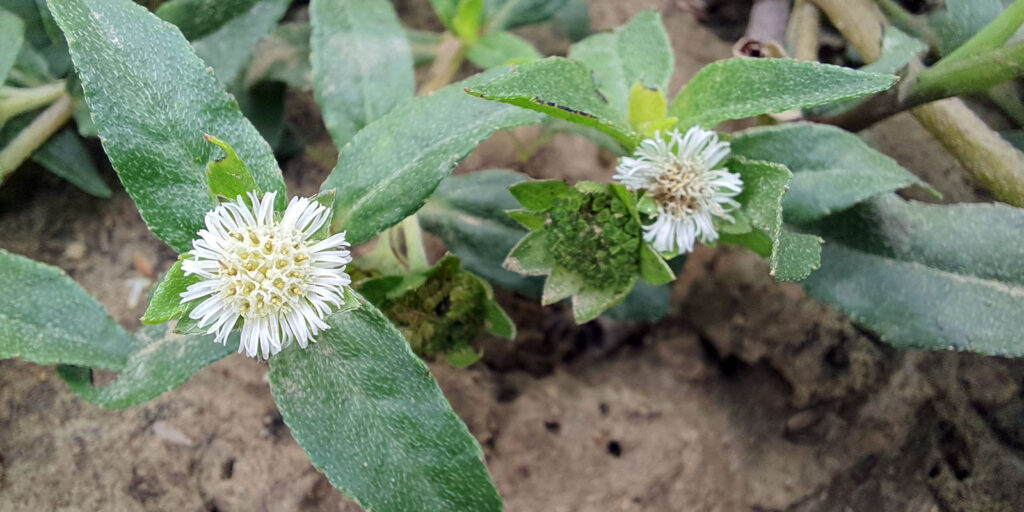
Bhringraj and Digestive Function:
Classical Perspectives:
In Ayurveda, Bhringraj is considered “Deepana” and “Pachana,” terms that denote its capacity to kindle the digestive fire and aid in the digestion of ama (undigested or toxic substances). This aligns with Ayurvedic principles of using Bhringraj to support Agni, promoting efficient digestion and preventing the accumulation of toxins in the digestive tract.
Modern Research:
Research indicates that Bhringraj (Eclipta Alba) may possess gastroprotective effects, shielding the stomach lining from damage. Additionally, it has been explored for its potential in managing various digestive issues, including hyperacidity and gastric ulcers. The herb’s role in promoting a healthy microbial balance in the gut may contribute to its digestive benefits.
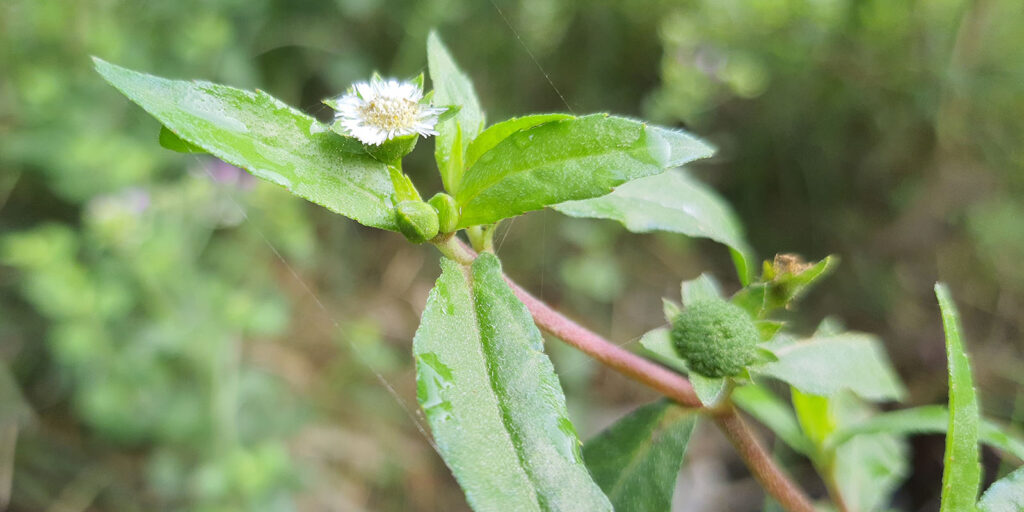
Bhringraj (Eclipta Alba) in Today’s Hectic Lifestyle:
In the hustle and bustle of modern life, where stress, pollution, and irregular eating patterns are prevalent, Bhringraj (Eclipta Alba) offers a natural remedy rooted in ancient wisdom. Its ability to support the liver’s detoxification processes and enhance digestion aligns with the challenges posed by contemporary lifestyles. Integrating Bhringraj (Eclipta Alba) into wellness routines may serve as a preventive measure against the repercussions of a stressed liver and compromised digestion.
Potential Side Effects and Precautions:
- While Bhringraj is generally considered safe for many individuals, it is crucial to exercise caution and adhere to recommended guidelines:
- Pregnancy and Lactation: Pregnant and lactating women should consult healthcare professionals before using Bhringraj, as its safety during these periods is not well-established.
- Allergies: Individuals with known allergies to plants in the Asteraceae family (such as ragweed, marigolds, and daisies) may be at an increased risk of allergic reactions to Bhringraj.
- Interactions with Medications: Bhringraj (Eclipta Alba) may interact with certain medications. It’s advisable to consult with a healthcare provider, especially if you are taking medications for liver conditions or other health issues.
- Topical Use: When using Bhringraj topically, individuals with sensitive skin should perform a patch test to avoid potential skin reactions.
In the intricate dance of Ayurveda and modern research, Bhringraj (Eclipta Alba) emerges as a versatile herb with potential benefits for liver and digestive health. In the face of our contemporary challenges, the wisdom encapsulated in Ayurveda offers a holistic approach to maintaining well-being. As we navigate the pollutants of our environment and the hustle of daily life, Bhringraj stands as a botanical ally, echoing the resonance of ancient knowledge in the pursuit of a healthy liver and robust digestion. However, it is imperative to approach the use of Bhringraj with mindfulness, respecting its potential interactions and individual variations. In the harmonious symphony of Ayurveda and modern science, Bhringraj beckons as a beacon of balance for our vital organs and digestive vitality.
Referances:
- Jha, Umang & Singh, Kanchan & Baghla, Amandeep Singh. (2022). Phytochemical and pharmacology activity of Bhringraj: A review. International journal of health sciences. 11113-11125. 10.53730/ijhs.v6nS3.8560.
- Jahan, Rownak et al. “Ethnopharmacological Significance of Eclipta alba (L.) Hassk. (Asteraceae).” International scholarly research notices vol. 2014 385969. 29 Oct. 2014, doi:10.1155/2014/385969
